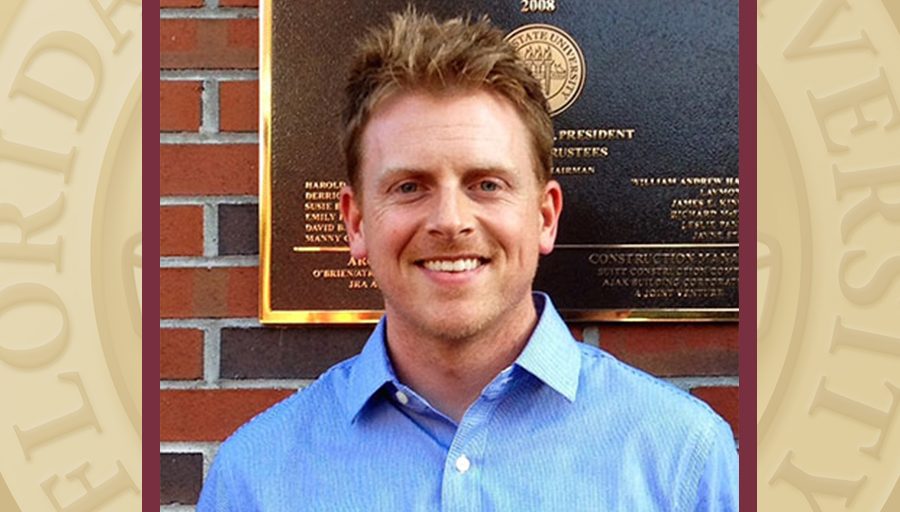
A Florida State University researcher is working closely with the pharmaceutical industry to develop new treatments for an eye condition that afflicts individuals as they age and causes far sightedness.
Associate Professor of Chemistry and Biochemistry James Frederich and Lento Bio, an early-stage pharmaceutical research company, are collaborating to develop drug compounds to potentially reverse the effects of presbyopia.
Presbyopia is a common age-related condition that often begins to develop around the age of 40 and affects more than 1.4 billion people worldwide. Essentially, the lens of the eye begins to lose elasticity, which makes it difficult for the eye to focus on objects that are close-up.
“There are many age-related conditions like presbyopia that are ripe for exploration and potential solutions through medicinal chemistry,” Frederich said. “My lab is excited to be tackling this problem through this collaboration with Lento Bio and are looking forward to designing novel drug-like small molecules that could help address some of these issues.”
Lento Bio established a research collaboration with Frederich’s lab at FSU focused on medicinal chemistry. Frederich and his students will work on compounds that the company plans to optimize for an eyedrop that would reduce lens stiffness and treat presbyopia.
The company is sponsoring the research in Frederich’s lab, and Frederich joined Lento Bio’s scientific advisory board at the beginning of the year.
Frederich, who received his doctorate in synthetic organic chemistry from UC Irvine, is a National Institutes of Health-funded scientist who has focused his work on using synthetic chemistry to push the boundaries of biomedical research.
In the past, Frederich and his students have looked at how they can synthesize complex natural products and potentially them as prototype therapeutics for cancer or neurological disorders.
“We are thrilled to be working with Dr. Frederich and his team at FSU,” said Kris Barnes, CEO of Lento Bio. “Biomolecular crosslinks, particularly Advanced Glycation End-products (AGEs, damage from sugar molecules) are a ubiquitous form of aging damage contributing to disease, and the rational design of small molecules to better cleave them or inhibit their formation represents an important therapeutic milestone. Dr. Frederich’s expertise in medicinal chemistry will be invaluable as we continue to develop such small molecule drugs for presbyopia and other aging indications.”
Frederich’s partnership with Lento Bio comes at a time when the university is ramping up its health research portfolio and pursuing partnerships with major health care systems through its FSU Health initiative. Frederich worked closely with the FSU Office of Research to set up the collaborative agreement.
“The FSU Office of Research was instrumental in fostering this industry-academia partnership,” Frederich said. “This office is a valuable resource for the FSU research community.”
Work like Frederich’s that can go quickly from the lab to clinical trials — and ultimately patients — will be a hallmark of FSU Health. By ramping up the university’s health care research and partnering with entities such as Tallahassee Memorial HealthCare and Mayo Clinic, FSU researchers are working to provide health care solutions faster to North Florida communities and beyond.
Every county in the Florida Panhandle has residents in federally designated medically underserved areas. Significant population growth over the past several years has further stressed the region’s health resources.
“Many scientists go into research because they want to find solutions to challenging problems and to have a true impact through their work,” Frederich said. “It is exciting for me personally to be working on this project with Lento Bio but also for my students to understand what they do in the lab can really help people. We’re hopeful this is the start of a long collaboration that will result in new treatments for a variety of age-related medical conditions.”
To learn more, listen to Frederich’s interview with FSU Headlines.




